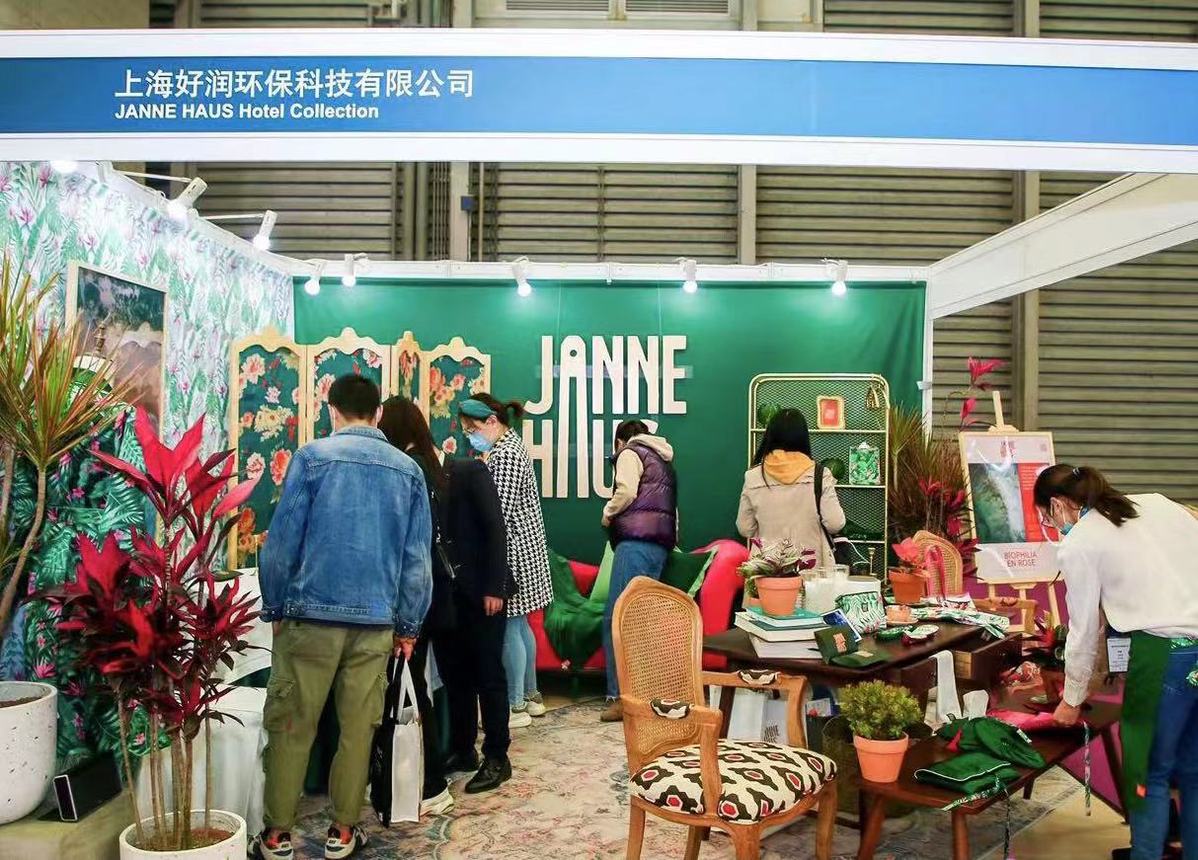World's first sustainable hospitality decor brand launched at Hotelex Shanghai


Janne Haus, which is claimed to be the world's first sustainable hospitality decor brand, made its global debut at Hotelex Shanghai 2021 on March 30.
Founded by Singaporean Jayne Goh and two Chinese Zhao Wenjing and Daniel Wang, the brand is targeted at luxury hotels, restaurants, interior designers and real estate companies.
Its current collection includes products like cushion covers, drapes, tissue holders, sleeping robes, tote bags and bedroom slippers, all of which feature the use of 100 percent rPET, or recycled polyester, as raw material.
All products come with a certificate that shows the number of recycled bottles used in the manufacturing process.
"In industries such as fashion, sustainable linens from recycled or vegan origins are no longer a foreign concept, and are gradually implemented across fast fashion and luxury brands alike. However, outside of fashion, this concept is still very new. Our aim is to bring this to the hospitality industry, and make carbon neutrality easy for hotels and restaurants alike," said Goh.
According to Goh, the company works with its waste management partners to source plastic from various venues in Shanghai such as malls, schools and residential buildings.
Janne Haus also uses a blockchain traceability system that allows a customer to determine where the plastic bottles used to create a particular item came from just by scanning a QR code.
"A transparent and traceable supply chain is critical to recycled products as a validation of authenticity," she said.
Goh, who also runs Camphor Tree Valley, an eco-resort in Ningbo, pointed out that Shanghai is the ideal place to base Janne Haus's production facility because of the city's keen focus on sustainability.
"Shanghai is the first city in China to implement waste separation, ban single-use hotel amenities and single-use plastic bags. Geographically, we are located near world-leading factories in both the recycling supply chain, and textile manufacturing supply chain. This allows for faster turnaround times, room for experimentation and hence resulting in a positive impact on innovation," she explained.




































